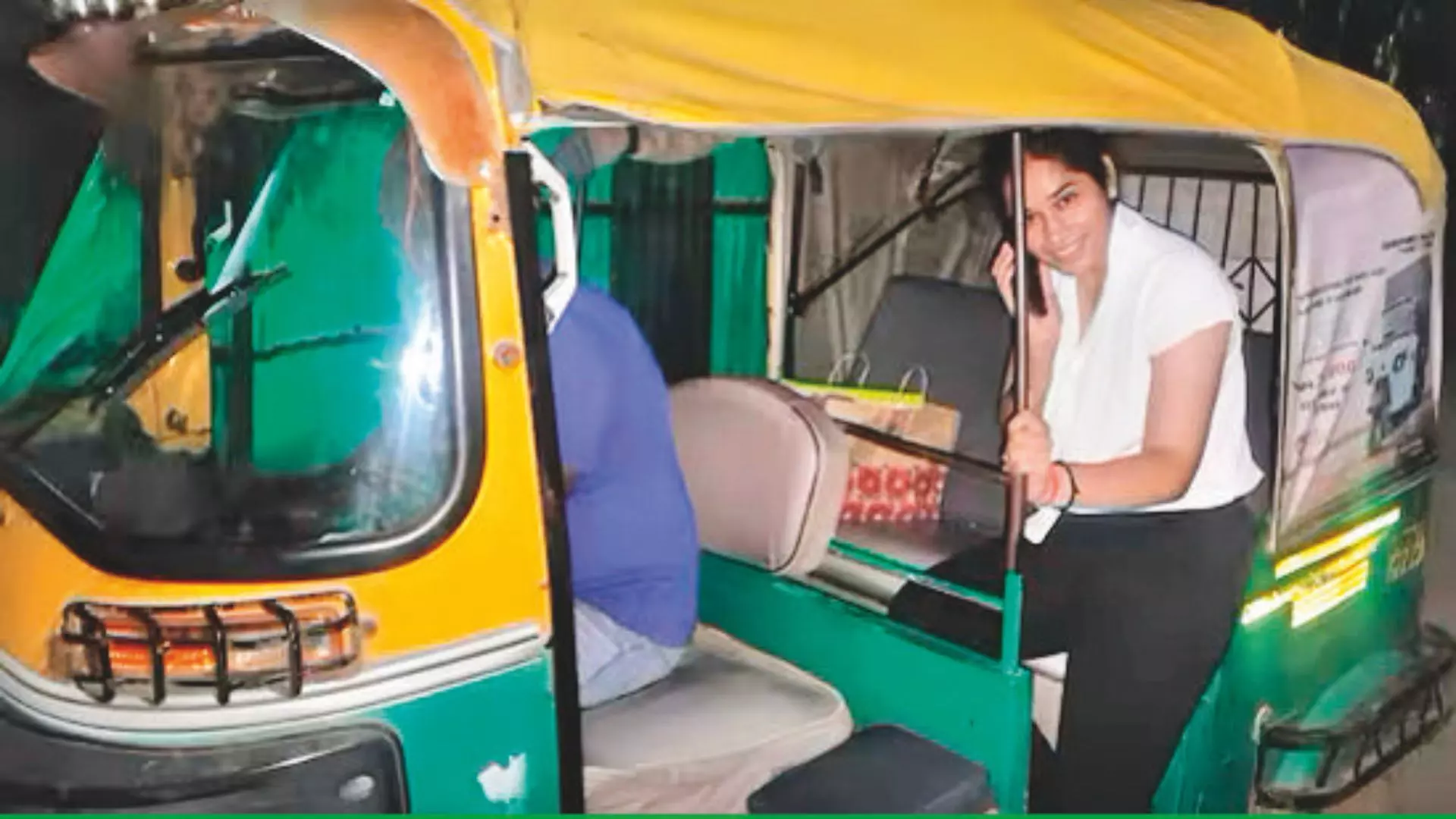The undercover: Mission possible
A woman police officer from UP who went undercover to gauge the police response to women in distress is an example police in the rest of the country need to follow. But will they?

When it comes to women’s safety, there is a lot that needs to be done. How about policemen gauging the response of their own whenever they come across a woman in distress? Well, they can, but the question is will they? A ray of hope, as far as women safety is concerned, came in the form of ACP Sukanya Sharma of Uttar Pradesh police, who went undercover to take stock of women’s safety in Agra at night. Clad in a t-shirt and jeans, she travelled alone in an auto and visited several sensitive locations in the city. At the railway station, she even posed as a tourist and called the police for assistance on their helpline number 112. She said she was alone, scared, and needed their help. Soon, she received a call from the women’s patrolling team, who said they were on their way to pick her up.
However, Sharma said she tested the system and it passed.
So what’s stopping police officials from putting in a little effort to do their bit and check their personnel’s response systems when women need them the most?
“Kudos to Sukanya Sharma for her exceptional leadership. By courageously testing the systems herself, she has shown commitment to the safety of women,” says senior IPS officer Abhilasha Bisht, Director Telangana Police Academy.
She claims that several measures are in place for the citizens’ safety and security.
“Sukanya Sharma has shown true commitment by putting herself at the receiving end to measure the effectiveness of response,” she says.
Bisht says we all need to emulate such testing of our systems continuously in order to weed out redundancies and make them more effective and operational in critical situations.
She, however, says women’s safety is a fundamental right, not a privilege.
“While the police and law enforcement roles are crucial, so is the role of leaders, academia, the media, and the press. All must synergistically prioritise women’s safety,” she says adding, “There is a need for widespread awareness campaigns, like the ones for ambulance rights, consumer rights, etc., to shine a light on this critical issue. It’s unacceptable that concern only surges after an assault, only to return to business as usual within a few days.”
Collective duty
Womens safety impacts every household in the country.
“The time has come for all of us to work together at all levels to bring about societal change. It is not just the woman’s responsibility or the police’s responsibility—it is a collective duty—to ensure women’s safety,” adds Bisht.
Another senior IPS officer, Swati Lakra, believes it’s always better to gauge people's problems when looking at things from their perspective and knowing the ground realities.
“This way we are better equipped to deal with situations that the public faces practically. The necessary interventions will be practical and more effective. We can also assess the performance of our own personnel in this way,” says the Addl DGP.
However, she asserts that this should be a continuous program rather than an isolated one.
“SHE teams of Telangana Police in fact have been doing this (going undercover) since their inception in Telangana by visiting crime-prone areas and nabbing wrongdoers,” informs Lakra.
“If people are aware that such undercover operations are happening in public places, there will be deterrence among the wrongdoers, and women will develop confidence, she says.
Arif H. Shaikh, an Inspector General of Police in Chhattisgarh, says women’s safety apparatus should not be individual officer-centric; checks and balances have to be inbuilt to keep it functioning properly. “At the same time, women should have faith in the police system, which relies on their own and their loved ones’ experiences with policing, to seek help from them,” says the officer.
He says the system should be able to tackle both of these issues. “How many women have emergency helpline numbers in their contact list? Such numbers should be widely publicised, and women should be appealed and encouraged to save these emergency numbers,” suggests Shaikh.
Police officers frequently engage in decoy operations as a means to uncover the true situation. Usually, our feedback is inaccurate or only partially accurate if we restrict it to our officers and other individuals who have a vested interest in keeping us satisfied and impressed. The best way to combat this is to disguise yourself, alter your appearance, and visit the areas to gain a sense of the actual situation. Another method involves dispatching decoys, who assume the role of the violators, and observing whether the police are vigilant enough to apprehend them. SHE team personnel do it to nab the eve-teasers and molestors redhanded with video evidence. — C. V. Anand, Commissioner of Police in Hyderabad
We have been carrying out this task in Telengana in a systematic manner for a considerable amount of time. Our SHE teams, which are special police units to tackle street harassment, move incognito. They also document inappropriate actions, serving as evidence. We believe that women’s safety is not solely the responsibility of women police officers, which is why our SHE teams consist of more men than women officers. We believe in building systems and processes, and our SHE teams model has yielded excellent results. Independent agencies have repeatedly rated Hyderabad as one of the safest cities in the country. ” — Shikha Goel, DGP CID, Director TG Cyber Security Bureau & TG FSL. DGP Women Safety Wing
